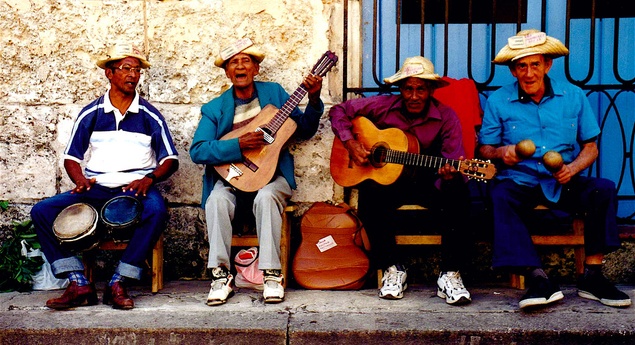Will American Tourists Ruin Cuba?

Imagine a night in Old Havana in the not-too-distant future. Where a centuries-old landmark once stood, now there’s a Senor Frog's. Your hotel, once Ernest Hemingway’s favorite, is emblazoned with a big Marriott sign. The streets are no longer filled with 1950s-era Fords and Chevys. Now everyone's driving a Ford Focus.
As the Obama administration continues to loosen travel restrictions to Cuba, Americans are flocking to the once-forbidden island – 161,000 just last year, according to the Havana Consulting Group, 77 percent more than the year before.
"There's definitely an increased intrigue and interest in going," says Manny Gonzalez, a New York-based marketing expert who travels to Cuba frequently on business. He says his friends have been swamping him with requests for Cuba travel tips.
"The usual inclination is, 'Well, I gotta go before things change,' before there's a McDonald's and Starbucks on every corner."
U.S.-based travel companies are champing at the bit to do business in Cuba. Airbnb’s listings have quadrupled to more than 4,000 since it began offering residences there last year. Starwood Hotels and Resorts recently struck a deal to become the first American hotel company to do business in Cuba in nearly 60 years. U.S.-based airlines and cruise lines are gearing up to offer regular service to the island.
"When visitors arrive and they stay and they invest and buy property, they bring with them elements of their own culture," says Hugh Riley, secretary general and chief executive officer of the Caribbean Tourism Organization.
"Is a culture ever impervious to influences from external sources? The answer is an unequivocal no."
Some fear the Americanization of Cuba has already begun.
"I'm worried about it in general. I don’t want to see that over there," says Rikki Rincon, a Texas-based marketer who works with the Cuban music act The Buena Vista All Stars. His wife is a Cuba native and he's traveled there many times to visit in-laws.
But is there really a reason to worry? Cuba has been a vacation mecca for decades. Even with the American travel embargo technically still in place, it is the Caribbean's second-most popular destination, behind the Dominican Republic. According to the Caribbean Tourism Association, Cuba drew 3.5 million visitors last year, including 2 million from Canada and Europe.
Then there are the Americans who have been visiting Cuba legally or sub-legally for years. "The Cubans are already used to the tourism, and used to Americans," says Rincon.
A simple look at modern Cuban culture — from its love of baseball to the popular black-market "El Paquete" hard drives stocked with American movies and TV shows — shows how American influence can take root in Cuba without taking over.
"I can’t imagine that Americans can do anything to hurt the authenticity that has such a long history and cultural strength," says Vicky Garcia, COO and co-owner of Cruise Planners.
Adds Riley: "With large numbers of Europeans and Canadians and Latin Americans visiting Cuba all of these years, Cuba's still been able to preserve the authentic culture that people desire. Cuba has to continue to do whatever it must to preserve the magnet which draws people there in the first place."
Cuba's government apparently agrees. In 2014, it passed a law requiring foreign investors to pay attention to protecting the island’s environment and natural resources. Plus, the Office of the City Historian of Havana has won international raves for preserving Cuba's architectural legacy.
"I don't think you're going to have the Cuban government approve a McDonald's, Starbucks, Target or CVS on every corner," Gonzalez says. "Cubans are ready to embrace Americans and American culture, but they are not going to sacrifice their own heritage and history."
Source: Fox News Travel













